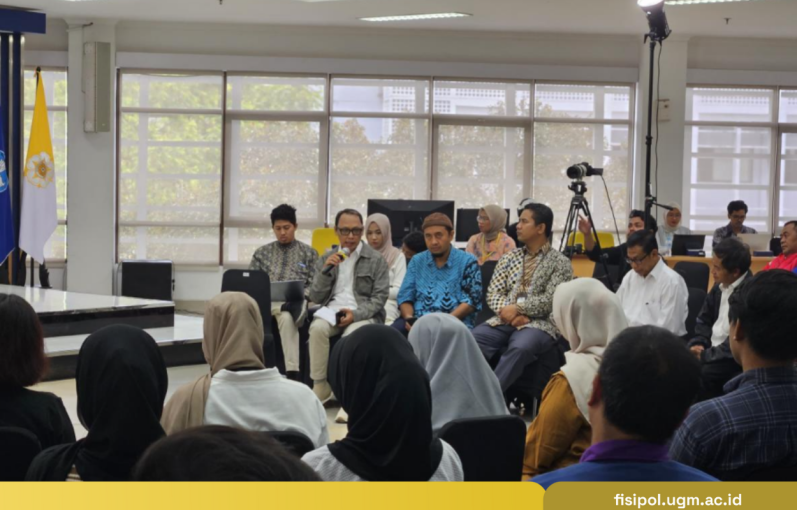
Yogyakarta, October 29th 2024─To dissect the visions and missions of regional head candidates throughout Yogyakarta, Bulaksumur Roundtable Forum (BRF) The Clinics opened an interactive discussion space that brought together various parties ranging from candidates, academics, and civil society. Bulaksumur Roundtable Forum (BRF) is an academic discussion event that is conducted periodically, focusing on the theme of sustainable development. In this round, BRF will conduct program review clinics on regent and deputy regent, also the mayor and deputy mayor candidates throughout the D.I. Yogyakarta.
The forum was held for two days on October 29-30, 2024 at the Mandiri Auditorium of Fisipol. On the first day, the forum entitled The Clinics “Sustainability Through Local Election” presented three sessions including Gunungkidul Regency, Kulon Progo Regency, and Sleman Regency. As an introduction to the first session, there was a research presentation that had been compiled by Election Corner and the Department of Politics and Government of FISIPOL UGM. Based on the research, Gunungkidul Regency still faces a number of sustainable development problems. Starting from agrarian problems from unclear land ownership, issues of death and human resources that make it the district with the highest stunting rate in D.I. Yogyakarta, and inadequate health facilities or services.
These problems need to be elaborated with a human and environmental approach. According to expert respondent Andreas Budi Widiyanta, S.Sos., M.A., when we talk about sustainability, the first issue should not be about humans and the environment. Not about the economy or infrastructure, because these two things are only a small part and a derivative of the second relationship from the dimension of living organisms. This needs to be noted in the formation of a vision-mission that prioritizes sustainability that pays attention to the priority scale with the main orientation on humans.
Drs. Wakijan from the Winning Team of Candidate Number 2, Sutrisna Wibawa and Sumanto, explained that the concern of the candidate’s program seeks the benefits of the Karst Landscape Area (KBAK) for the community. In this context, Gunungkidul Regency with more than 75 thousand hectares of KBAK has both potential and challenges in its utilization. Gunungkidul, which often experiences a clean water crisis, is proportional to the amount of karst that should bring benefits as a water storage and carbon sequestration pocket. Therefore, the utilization of karst must be in line with conservation principles, not just the principle of community welfare.
“The main thing is that measuring benefits must be based on science so as not to cause crises, disaster vulnerability, and so on. If KBAK continues to be charged for its economic benefits for residents, it will be exploitative,” said Andreas in response.
Thus, this event is an important momentum for candidates to introduce innovative policy plans, including efforts to realize transparent, responsive and public participation-based governance. Through this discussion, the public can assess how their prospective leaders formulate strategies to achieve their vision and mission to create sustainable prosperity.
